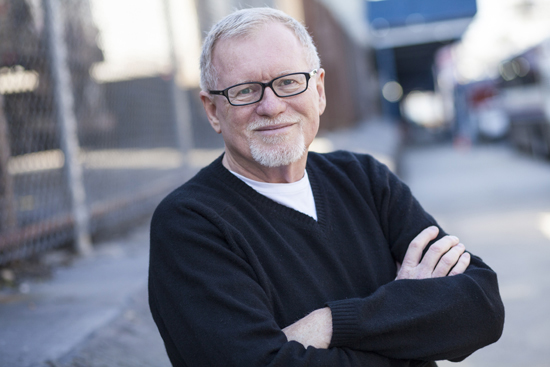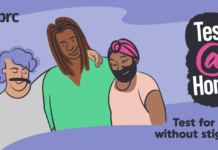
BEGIN WITH YES – MY BEST YEAR EVER :: Personal coach Paul Boynton is the author of Begin With Yes, a guide to setting things in motion and opening new doors. In conversation with GGN publisher Shaun Proulx, Boynton describes what he calls the Law of Action. You’ve heard of Law of Attraction? The Law of Action reverses the order, stating what we DO effects how we THINK and the kind of experiences we HAVE. Learn how change is possible, and get concrete examples that show the way to making 2014 – and every year – yours.

Listen to Shaun and Paul’s conversation in its entirety or, read the condensed version below:
Shaun Proulx: Several months back I read and I loved a little book called Begin with Yes. Begin with Yes introduces the Law of Action, a principle that reverses the order of
The Law of Attraction, which many of you know, I talk a lot about, I teach; I live my life by The Law of Attraction. That law tells us that what we focus our attention on we get more of. Whether you’re focusing deliberately or by default, the essence of whatever you’re thinking about continues to come to you in future experiences.
The Law of Action, Paul Boynton’s book explains, is a principle that reverses the order. Paul says it is a law that is equally powerful, that what we do affects how we think, and the kinds of experiences we have, and I’m delighted – because this interview has taken years, eons! to book – to say: Paul, how are you?
Paul Boynton: I am doing great, and good things are worth waiting for, right Shaun?
SP: I concur, and not to belittle your little book, but people these days don’t have a lot of time to read, they don’t want to pick up a weighty tome, so I want to say that Begin with Yes is a very fast, but full read. What you’re telling people is to approach life with a Yes attitude – but we know that for a lot of people that’s hard to do.
PB: We need to stay grounded in reality. I am all for optimism, and I am an optimistic person, but I do think people who are optimistic with no appreciation or awareness of what is happening around them can be very annoying to be around. Life can be complicated, and sometimes painful and confusing, so I never suggest that people just paste a smile on their face, and pretend everything is alright, so I’m really recommending that it’s okay to be grounded in reality – just don’t get stuck there.
SP: The trouble with putting a smile on your face is that it isn’t authentic. From a Law of Attraction stand-point you’re just going to get back more that feels the same. You can have a smile on your face even though your mother just died, it’s not going mask the fact that your mother just died, so faking how you feel doesn’t change a thing.
PB: People will have a hard time identifying with that person, so you might find yourself being very lonely if you can’t temper that pasted smile with at least one foot on the ground.
SP: Okay, so now we’ve got a reality-based life going. You suggest that from there we begin with ‘yes’, even if shit is happening. So let’s just “bare bones” this: Someone’s life is not very good, they want a new start, this is their year, this is their new beginning, and so to begin with yes means?
PB: People have the tendency, and I put myself in this category, of complicating things well beyond where they need to be. I emphasize taking small steps, and if the step is not small enough for you to do it today, if it’s not small enough for you to do it in the next 45 minutes, then it’s too big.
You get to choose what you want to focus on, so you can focus on the fact that you are unemployed, or you don’t have enough to pay your rent, or whatever reality you are dealing with, but ask yourself the very simple question of now what? It’s “What’s one small thing I could do, right now, or in the next 45 minutes, that would move me closer to resolving the problem.” Then you’re not overwhelming yourself with the magnitude of fixing everything in one step or fixing everything in one half hour, but you’re focused on something small, manageable and practical that you can do, and that gets you moving in the right direction.
Once you get moving in the right direction, then it’s easier to say, “Ok, I’ve done that, now what can I do?” Then all of a sudden, you find yourself moving, and picking up steam, and moving ahead more quickly. So many people have big dreams, and I think big dreams are incredibly important, but they need to be broken down into manageable steps. For example, if your dream is to write a novel, I’d say, “Why don’t you write a couple of sentences today?” It’s getting started that sets things into motion. If you wrote a couple of sentences every day for the next ten days, you’ll have chapter one done. Then you won’t get stuck in a place of, “Oh, I’ve got to write a book, and that’s a big thing, and I don’t know what I want to write about, and I don’t know what I want to talk about, or I don’t know how to spell, or all the reasons not to do it ,” and I say, just write a sentence.
SP: That barrier comes up in the workshops that I’ve been leading, where people will be “Yeah, but…” They’ve got that negative voice in their head, and I’ll challenge them: “Can you just say, ‘I like the idea of a new job’? “ Can you just say that you like the idea of going and getting a piece of paper and a pen? I love what you just said: break it down into the smallest steps possible, so you don’t even have to get off your couch. Just start thinking, which is action, that you like the very idea.
You just mentioned the importance of still having big goals, and writing lists of your goals and your desires, and why it’s important to write down even the giant ones, I wonder if you can share a little bit about your thinking around that.
PB: I think if you pay attention to yourself, you can get to those big dreams fairly easily, but still we’ve been conditioned or taught that through the difficulties of life or growing older, or having to make a living and pay the rent, we’ve somehow forgotten those big dreams that we had when we were perhaps younger, or more naïve. And I use “naïve” in a positive way. I think naïve is actually a good thing: not weighted down by the stuff around us and all the people who tell us that we can’t do things. Those big dreams give us a window into what’s important, not only ourselves, and our own sense of well-being, but I actually believe what we are supposed to be doing is also about the rest of the world. If we each have a mission, a purpose, and a reason for being here, I think it’s exactly tied to those big dreams, those things that are deep within us that are important.
When I was a kid, I wanted to be a trapeze artist, and my oldest son gave me a gift certificate a couple of years ago to take a trapeze lesson. I still haven’t taken the lesson, I’m older now and I’m not going to join the circus. However, what I can do with that big dream is say, “What about that was important to me?” I might have attached the trapeze to things that were even deeper, and for me: it’s performance, it’s taking risks, it’s doing something exciting and daring. And then what I get to do is say,”I may be 65 now, and my trapeze-flying days are probably behind me, but what could I do to capture the daring, the excitement, the risk-taking, the performance?” And I’m doing that with you right now, talking with you.
SP: Got it, and I think so will a lot of people when you put it that way. A lot of people know my story: I fell into the world of finance in my twenties, and then Y2K was coming – everybody remembers when the world was going to end – I was around 30 and looking at myself in the mirror and having this kind of conversation with my self. All my life I wanted to be an actor. When my mum would tuck me into bed when I was a little boy, she would say, “What do you want to be when you grow up?” and I would say, “I want to be an actress”, and she’d say, “No no, you want to be an actor.” That was my fondest dream my whole life.
So when I was having honest conversation with myself, I acknowledged that I was not doing anything close to that being in finance. When I quit, I told everyone it was to be an actor. So many people were like, “Oh my God, that’s so crazy, nobody could make their money that way!” Knowing what I know now, the point wasn’t that I would become an actor, it’s that that was a starting place. What I was really saying is that I have a big goal, and my goal is about performance, it’s about self-expression, it’s about creativity, it’s about being centre stage, it’s about entertaining people, it’s about being in front of people. It wasn’t about going and auditioning for plays and TV shows – although I did do that – it was about stepping onto a path that ultimately lead to where I am now, which is expressing myself. I make a living being myself. And what is key to say is that I enjoy ALL the satisfaction that I felt from the experiences I once had when I did act, it was the feeling I was searching for, however I found it.
PB: I actually could not agree with you more Shaun, and again, sometimes people feel like they’re being too self-absorbed, or too self-focused, or paying attention to their own dreams, and that’s a negative thing, and I actually believe that you’re called to do that because you have something that the universe – if you like that word, or don’t – you’ve been called to bring something forward as a gift to the rest of us, and that’s exactly tied to your passion.
SP: Now let’s talk about the Law of Action, what is that?
PB: I’m a believer in the Law of Attraction as you are, but I think that sometimes that’s misunderstood by some people. The Law of Attraction is real and the Law of Attraction does work, but there’s another thing that needs to be put in play, and that is the Law of Action. You need to roll up your sleeves and make something happen, and I actually think that it’s up to us to co-create with the universe, not just sit and wait for something good and meaningful to happen to us. If things just fell into our lap that wait, I don’t think that would be very much fun.
SP: We’d be bored.
PB: Let’s emphasize the Law of Action, because many times we just don’t feel like it. We don’t feel like getting out of bed and going to work, sometimes we don’t feel like taking the effort that needs to be taken to move something along. Forget about how you’re feeling and just do something. You can make it small enough that it’s manageable, and you can do in a day. If you can’t take the action today before you go to bed, then it’s too big, and you just need to make it smaller. For example, if you want to do back to college and that’s an overwhelming thing, what’s one thing you could do today that could move you a little bit closer to going back to college? It may simply be sitting at your computer, and making a list of all the schools within 20 minutes of where you live, then that’s an action that you’ve completed and done. And then you say now what? Maybe the next day, what you need to do is look at the schools that offer programs that are interesting to you. That’s another step. And then the next step is actually driving by the campus, and maybe even walking around the campus, just to get a feel for it.
You don’t have to make these steps difficult or painful or terribly scary or overwhelming you just need to do it. Once people are in movement, once they are taking steps, they begin to feel better, because they are actually doing something, and when you feel better, you have more energy to take more steps, so all of a sudden you don’t have to wait until you’re feeling like it, you don’t have to wait to have the right attitude, you don’t have to wait until you’re feeling excited or full of energy to do something, just do something, and all those things will catch up with you later, and nine times out of ten, or even 99 times out of 100, the good feelings do catch up with you.
SP: I wish your book had come along years ago.
PB: I could have used the book years ago myself!
SP: It took me longer than I would have liked, but now I feel I am a master at just doing that first step no matter what, and I think the reason why the feelings catch up with you is because when you do that first step it’s so rich, that it’s as though I’ve completed the entire project. I have been working on a book in my spare time for years. I’m so close to the finish line, but I have to spread it out in front of me like a story board, and move some stuff around to get me to the next level. However, spreading out 500 pages is not an easy thing to do in a busy full house and office – where do you spread out your 500 pages?
The opportunity one day came because the long weekend was here, my husband was away, the pets were chilled, I had the whole place to myself. And I thought, this is when you could spread the book out. But I was lying on the couch, it was late in the day, I was already exhausted, and I’d already had a couple of glasses of wine. And I’m looking at this manuscript, going, “Ugh, man!” And I thought of you, and I thought of your book, and I thought of what I already know to be true, and I said to myself, “Well, you know what? Just take the manuscript off the table, and put it where you will spread it out. Move it 30 feet. I mean, Paul, there couldn’t have been a smaller step that I took.
PB: Yup.
SP: And once I moved the manuscript, I was like, ok why don’t you spread it out now, you don’t have to mix any pages around. You’ve got the whole long weekend, come back tomorrow and start to mix. Well, here’s what’s interesting: I spread the book out… do you think I could walk away from it? No. Suddenly, I was in this creative zone. I poured myself another glass of wine, and I spent the next two hours moving things around before finally going to bed satisfied. I got more done than I anticipated on a project past its due date.
PB: Right, that’s a perfect example of what we’re talking about, Shaun, and if you’re waiting for the universe to show up and take care of you, why don’t you show the universe that you’re a little bit interested in it by doing something; that is when the universe does step in. I think that we sometimes sit there waiting for the universe to make the first move, when not only are we capable..
SP: So someone is listening to this conversation right now Paul, and their jazzed about a fresh start, they want this to be their time, so what would be the first thing, you’d have them do right now?
PB: I would say, just ask yourself that simple, “Ok, but now what?” question. I think it’s beautiful. What’s one small thing I can do today, and then chew it, and you get to ask the question again, and you keep asking it over and over and over. I think that it’s okay to recognize that you have a full-time job that you have to take care of, you’ve got kids that need to be helped with their homework, you’ve got a husband or a wife that needs some attention, and all these other things going on in the world, and maybe there’s one thing, or two things, or three or four things, maybe you want to write a book, record a CD, work on a speech that you want to make. I think you can have several things in play at the same time, as long as you’re asking yourself: what’s one small thing I can do today to move this forward.
The other thing that comes up for me, listening to you is, don’t get attached to a specific outcome. You wanted to be an actor, and I wanted to become a trapeze artist. If we had stayed so focused on that, we might have missed some opportunities to really get at where we were supposed to be heading. Opportunities might present themselves along the way, we might get into college, and want to be a social worker, and then you meet a teacher that you fall in love with who’s teaching Criminal Justice, and you switch gears and decide to go in another direction. Life does take on a life of it’s own. You just have to stay open and a little willing to appreciate the mystery of what is ahead.
SP: I want to say thank you Paul, for the warmth and encouragement that you offer with your book, Begin with Yes. I hope you have a wonderful day and a wonderful year.
PB: Thank you Shaun, it’s been a great pleasure.
– The Begin With Yes Facebook page is here. Special offer! Visit the Begin With Yes website and click “Special Offer” to download a free copy!





